Are Work Boots Good for Plantar Fasciitis?
If you have plantar fasciitis, you’ll need boots to alleviate the symptoms at work.
When wearing your work boots for large parts of the day, the wrong boot can cause severe pain, so it’s important to know whether work boots are good for plantar fasciitis or not.
Arch support is vital if you have plantar fasciitis, and while most boots do offer slightly better arch support than shoes, not all have the complete package.
Boots with superb arch support, a comfortable midsole, and a leather shank will significantly improve your quality of life. Because of the terrain and working conditions their boots are worn in, boot manufacturers in the Pacific Northwest often excel at making boots that alleviate plantar fasciitis.
Can Good Work Boots Help My Plantar Fasciitis?
Putting in a shift at work while suffering from plantar fasciitis can feel unbearable, especially in the wrong boots.
Finding boots that’ll stand up to the rigors of your daily routine can be challenging enough, but when you’re also looking for boots that help with the pain you’re suffering, it can be hard to know what to look for.
What Makes a Boot Good For Plantar Fasciitis?
A surprising number of people live with plantar fasciitis without realizing it. If you’re suffering from foot pain, especially around the heel area, then you should read this explanation of what plantar fasciitis is. When it comes to combating plantar fasciitis, your footwear is key in keeping you on your feet.
Some of the critical areas on a boot that’ll help with reducing the pain are;
- Arch support - without it, you’ll suffer.
- Shank - a load-bearing strip between the insole and outsole to spread impact loads.
- Thick midsole - a rigid yet cushioned midsole reduces the impact on your heel.
- Heels - a raised heel reduces pressure on your heel, one of the most common areas plantar fasciitis sufferers feel the pain.
- Taller boot shaft - increased support and load displacement all reduce foot fatigue.
As luck would have it, boots made in the Pacific Northwest often tick all the above boxes as they need to handle some of the most challenging terrain and conditions anyone has ever worked in.
The JK Boots Superduty - Redwood has the incredible support you’ll need to combat plantar fasciitis thanks to its outstanding arch support, raised logger heel, and 10” shaft. A leather shank that spreads impact loads not only increases comfort, but because we use leather rather than steel shank, you’ll feel the benefit immediately as it contours to your foot shape.
A genuine oak-tanned USA leather midsole will remain rigid enough to protect your feet from impact yet still flexible enough to feel noticeably more comfortable. The Superduty’s Vibram sole isn’t just for traction and durability, it’s also supple enough to reduce foot fatigue.
Because anyone from wildland firefighters to arctic workers can suffer from plantar fasciitis, most of our boots, from the JK Boots Fire Inlander to the JK Boots Arctic No. 2, provide the arch support and stability you need to keep plantar fasciitis at bay.
Wedge Soles Alleviate Plantar Fasciitis
Not everyone enjoys wearing a work boot with a high shaft or a raised heel, and while that can come down to personal choice, it shouldn’t affect your ability to work. Plantar fasciitis can be a nightmare, and JK Boots have you covered for those sufferers who prefer a different solution.
An excellent alternative to a loggers heel is to wear a wedge sole boot such as the JK Boots 300 - Redwood. A wedge sole can provide arch support, a thick rubber midsole, and a resilient Vibram wedge sole that lets you comfortably work all day.
A wedge sole inherently supports your arches more than a flat sole, and even the shallowest inclines can make all the difference to your posture. If logger heels and a 10” boot shaft isn’t your thing, the JK Boots 300 - Brown, with its 6” shaft, is a perfect choice.
Boots To Avoid If You Suffer From Plantar Fasciitis
Try and avoid work boots with a completely flat sole, as your arches will be put under more strain, which can cause an onset of plantar fasciitis. If you have to wear work boots with a flat sole, ensure you buy insoles that provide the arch support you’ll need.
Boots that don’t flex or contour with your feet can also cause additional discomfort, which is why leather is a popular choice, as it’s one of the few materials that will contour to your feet. The closer the fit and the better the support, the happier your feet will be.
Can I Add Anything to My Boots If I Have Plantar Fasciitis?
The most common addition to work boots you’ll find plantar fasciitis sufferers using is an insole. Hundreds of styles and options are available, but a specialized orthotic insole that provides additional cushioning and arch support can be a massive help.
You can find work boot insoles that come in varying firmness depending on your needs, and you should try a few before settling on one that you find comfortable. Insoles are easy to use and replace and offer one of the best solutions for managing plantar fasciitis.
Another option is to buy custom-made boots, as you’ll be able to ensure the fit is perfect, and the arch support is just what you need. Off-the-shelf work boots are great and can last for years, but they will never offer the same level of comfort and unique fit as a custom boot.
The socks you wear can also impact (literally) how you cope with plantar fasciitis. Thin cotton socks might feel cool for a while but won’t help with cushioning your steps. Find a thick, cushioned, woolen work sock to add even more cushioning, and it’ll reduce foot fatigue throughout the day.
Arch Support and Comfort are Everything
Regardless of price or style, if your work boots don’t offer the arch support you need, you’ll never eliminate or manage your plantar fasciitis. Find a custom-made work boot that provides support in the key areas we discussed above, and you’ll be able to work all day comfortably.
The JK Boots Superduty is arguably the perfect companion for anyone suffering plantar fasciitis as it’s made to order, has a raised heel, and its leather shank and midsole for improved impact dispersion can drastically reduce foot fatigue.
As is often the case for boots made in the Pacific Northwest, the style made in this region provides possibly the best arch support you’ll ever find in a boot. If you’re still looking for even more help, then an orthotic insole can provide the cushioned support your feet need. The extra arch support and comfort can make all the difference if you work on rough terrain.
We hope you’ve enjoyed this article, and if you’ve found other ways to combat plantar fasciitis, leave a comment below.
FAQs
What kind of boots are good for plantar fasciitis?
When looking for work boots that can reduce the impact of plantar fasciitis, you need to find boots with excellent arch support, as this is one of the primary reasons for the condition to flare up. Boots need to have a shank, ideally leather, as it’ll contour to your foot shape, a firm midsole, and space to include an orthotic insole should you need additional support.
What shoes should you not wear with plantar fasciitis?
Wearing flat shoes or boots can cause plantar fasciitis to flare up due to the lack of arch support. Old shoes or boots can also cause problems as they’ll often have lost much of their cushioning. You can combat that with insoles, but as a rule, avoid old, flat-soled footwear. Thin socks that won’t increase the cushioning for your feet should also be avoided.


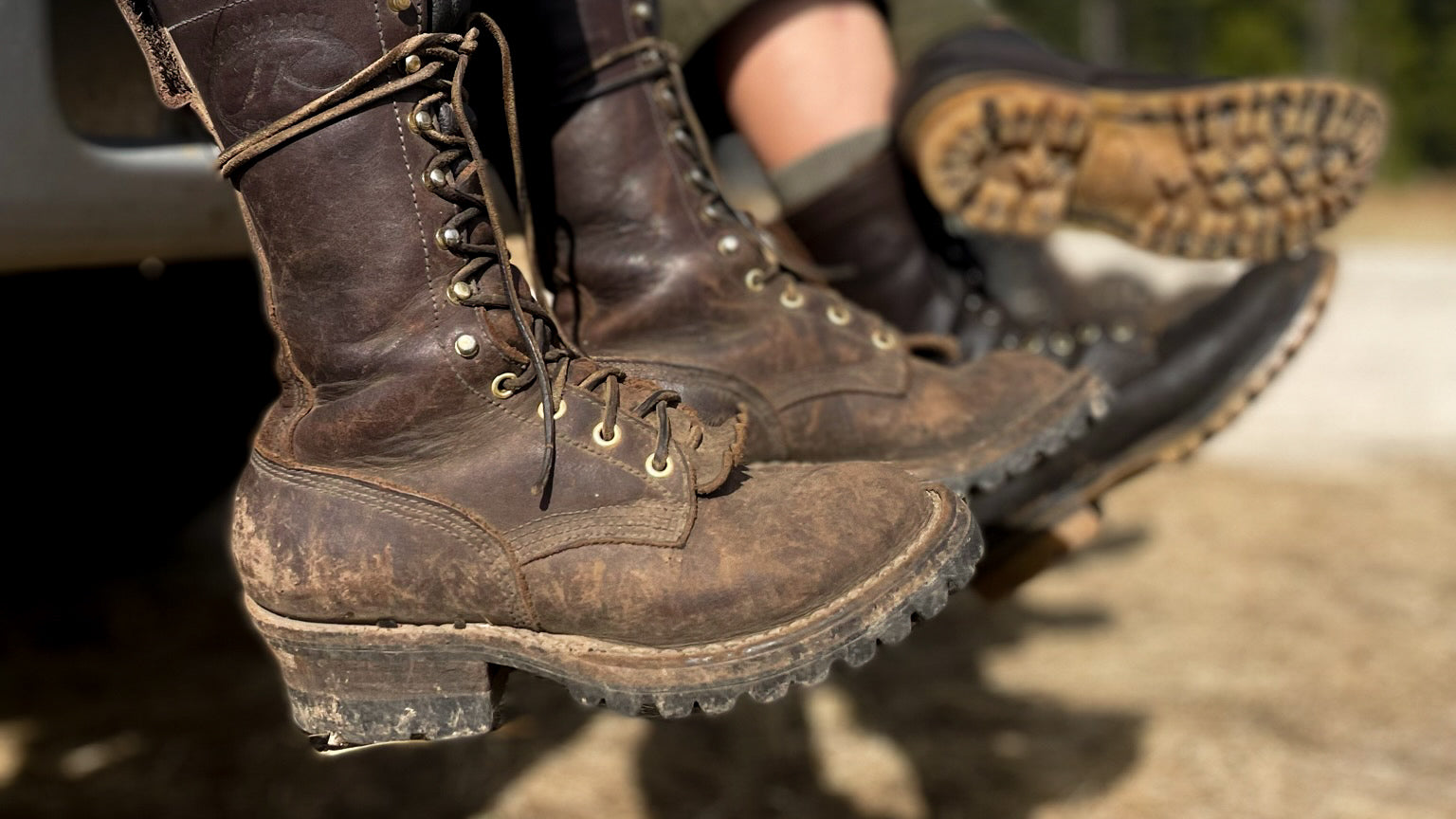

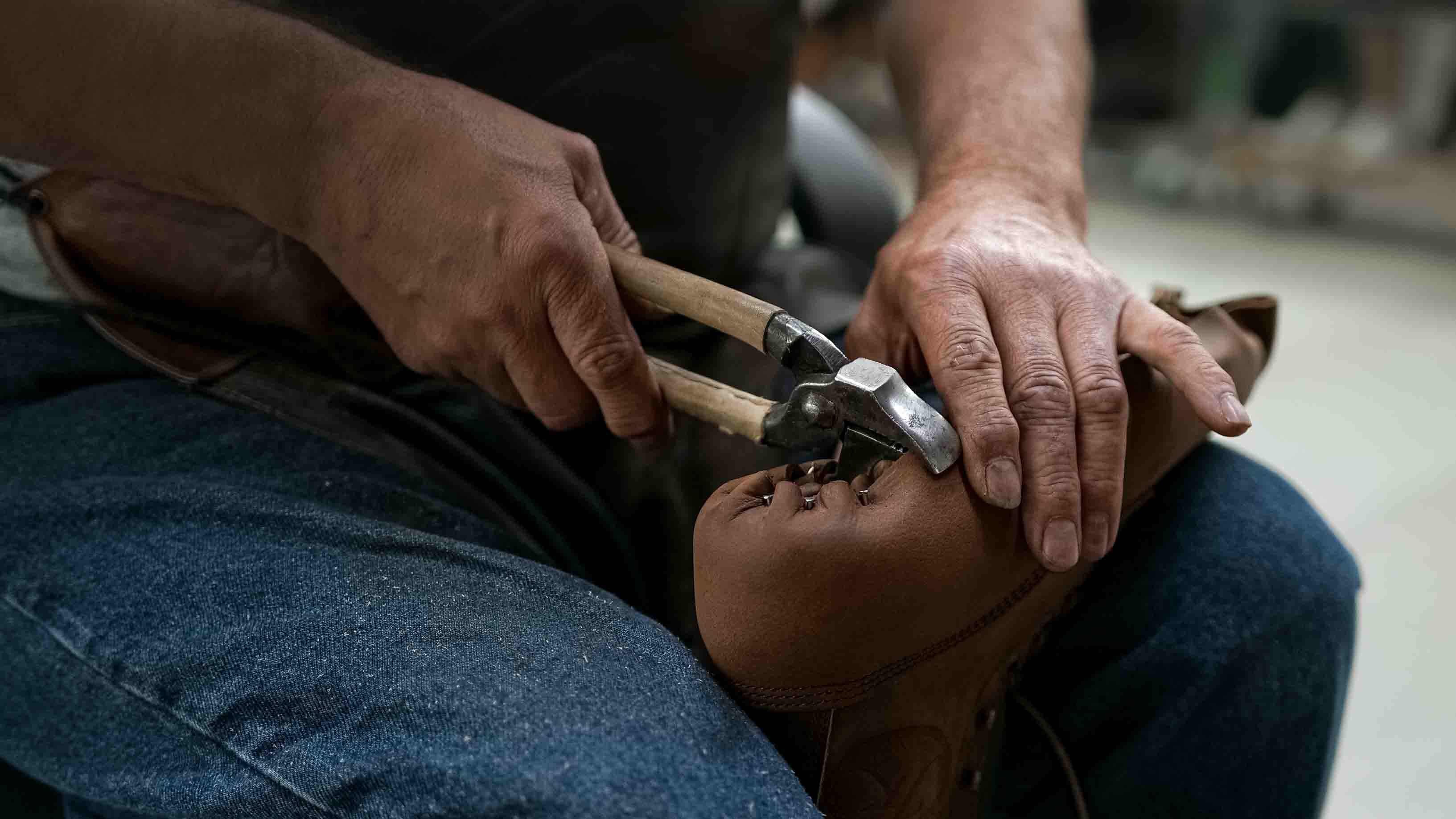
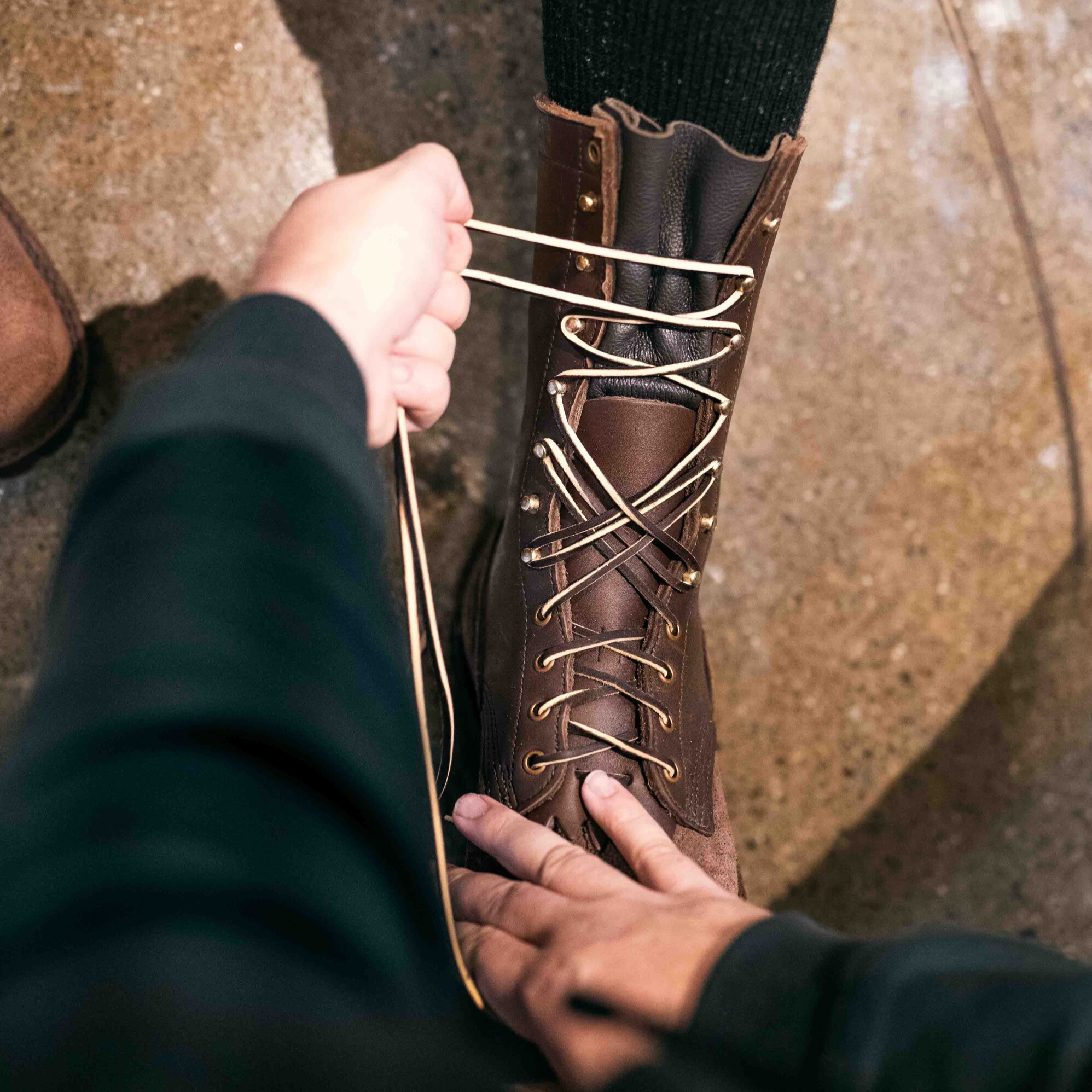

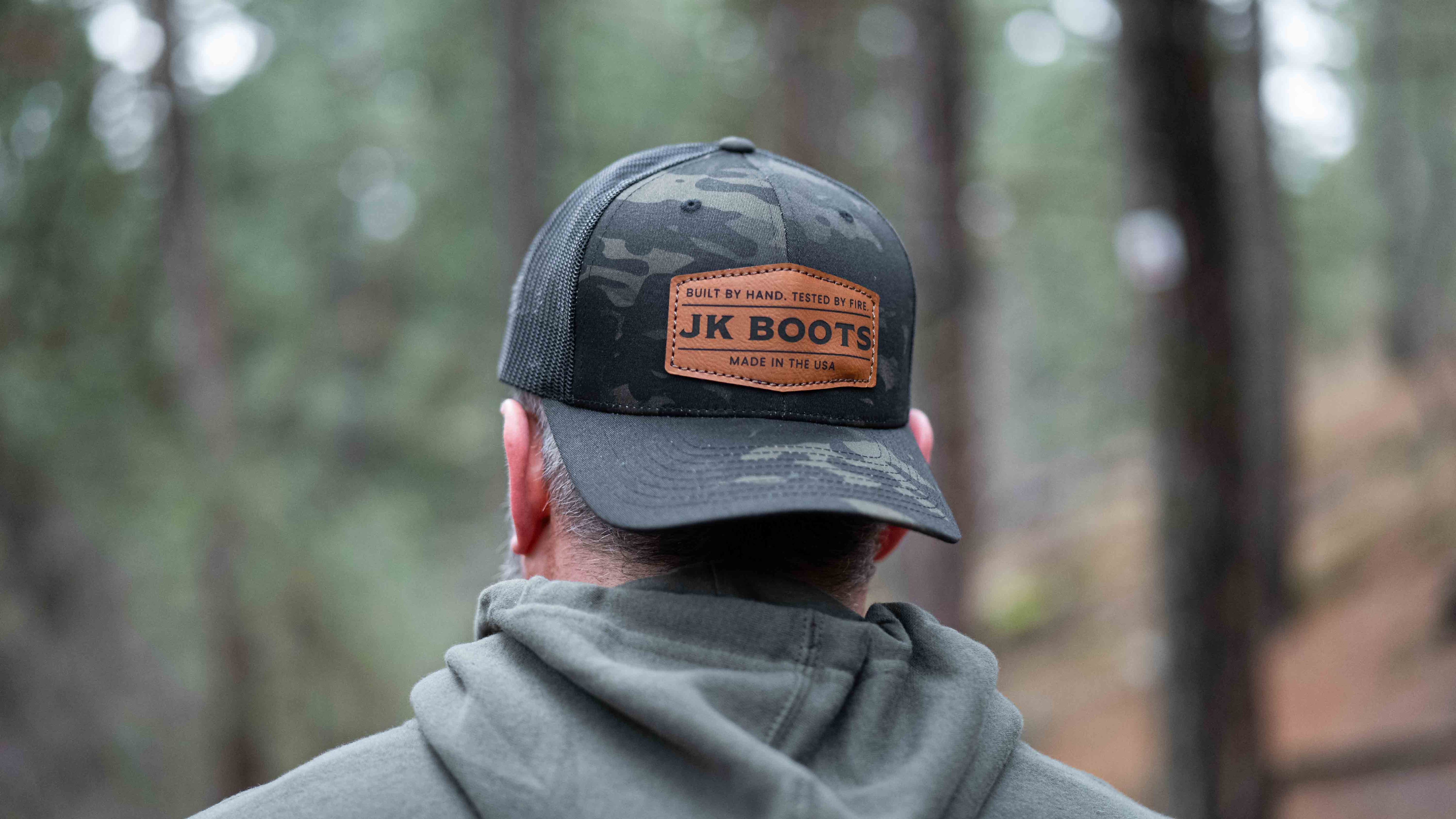
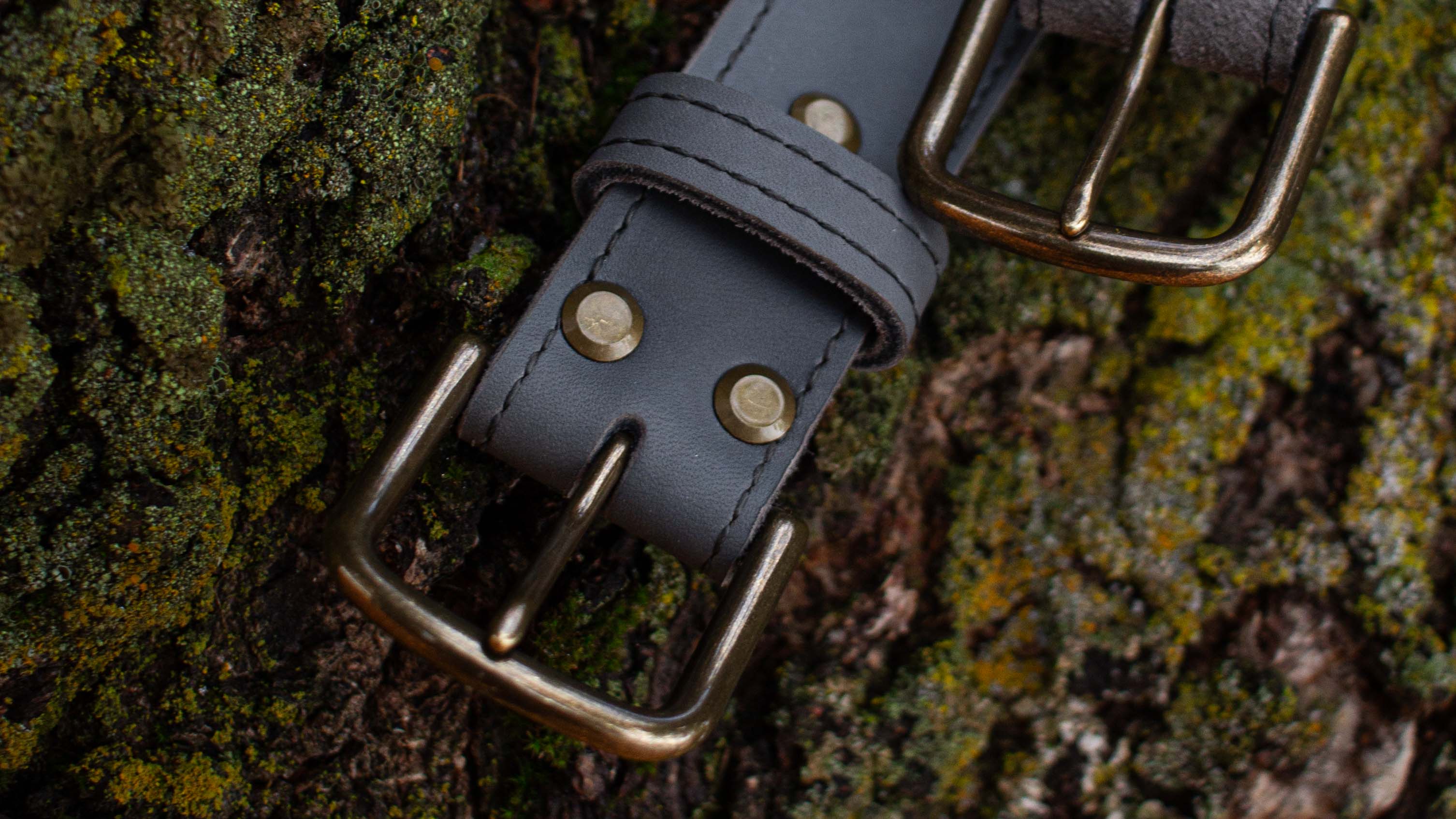
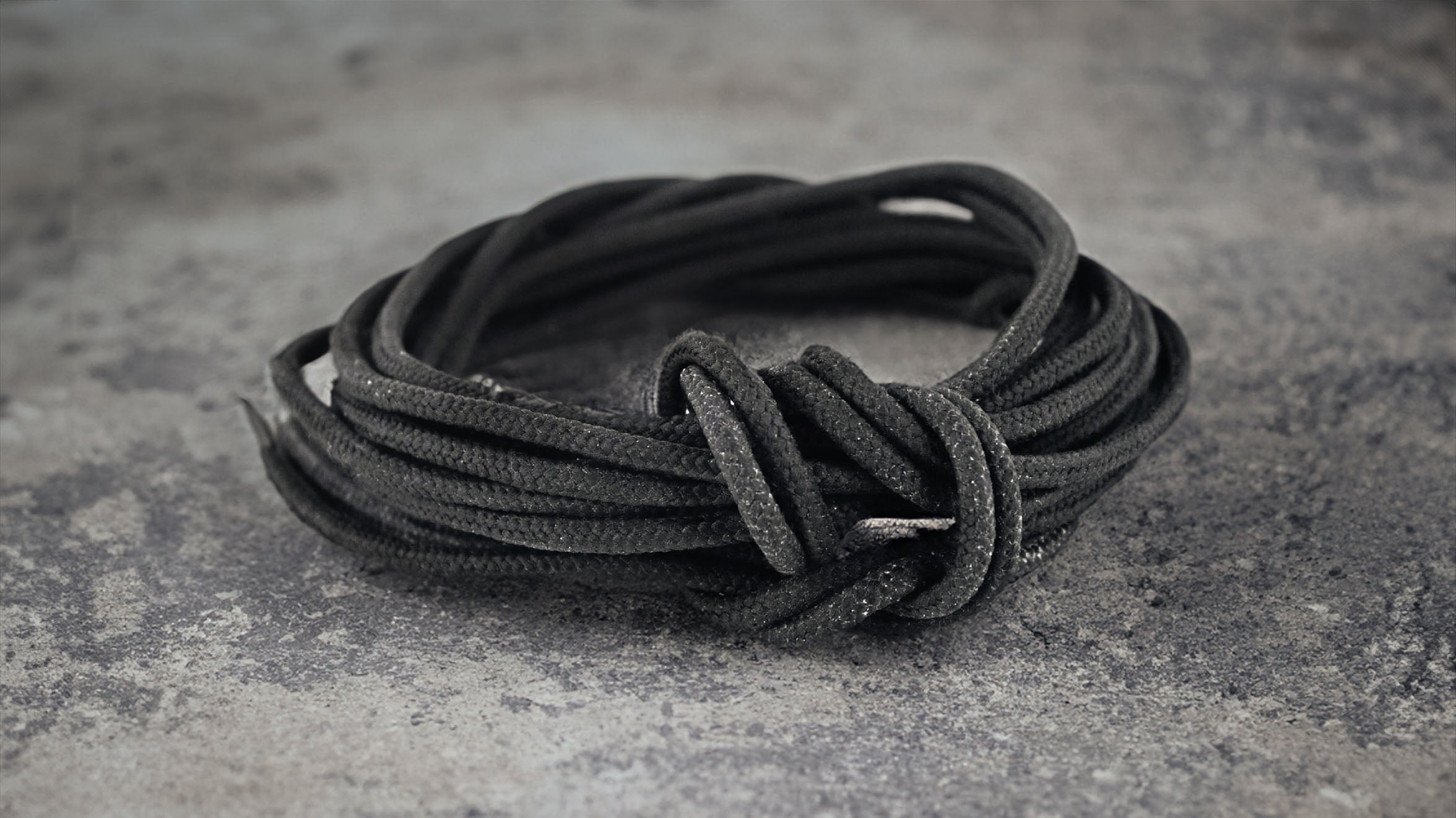
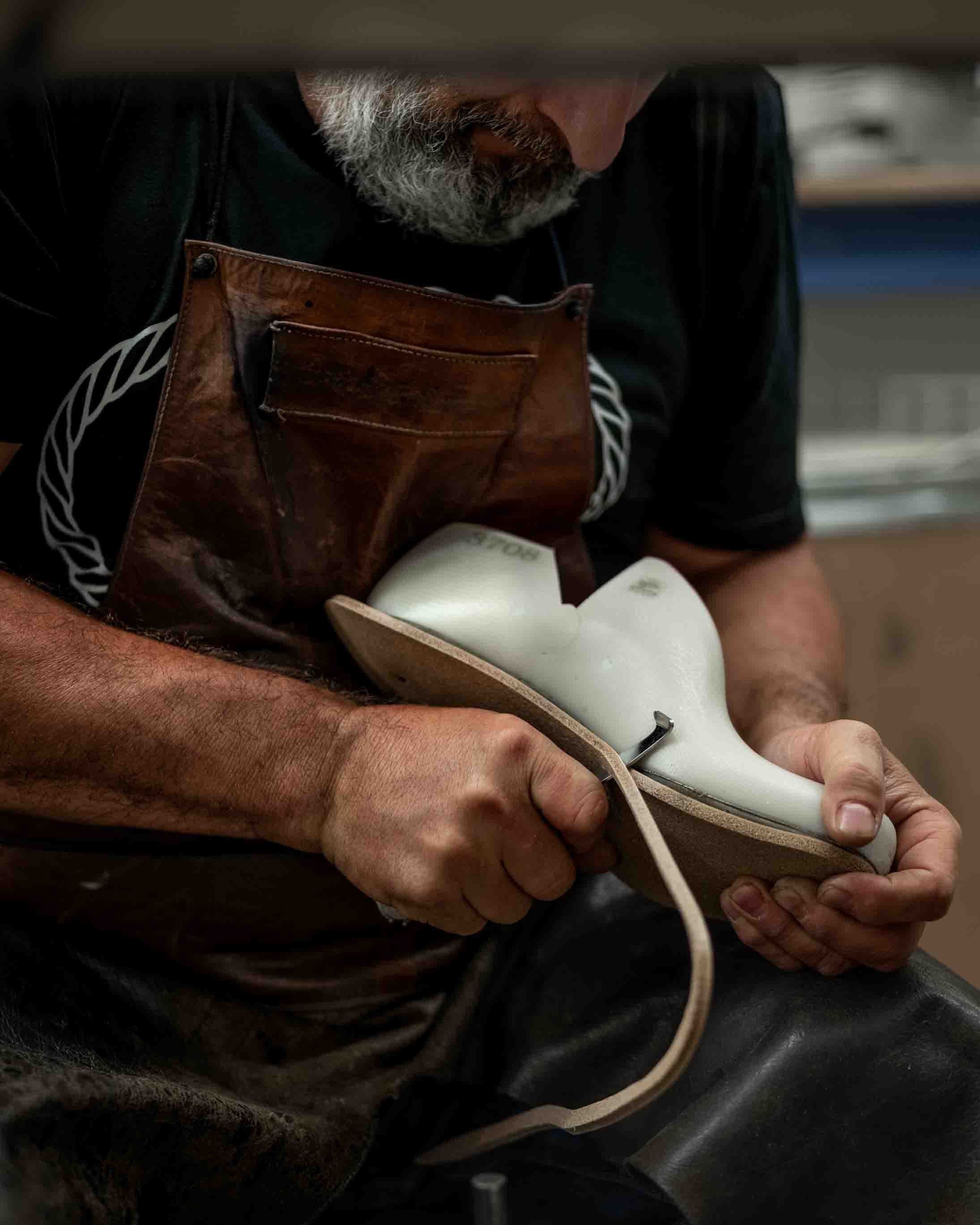
Need something to help with my plantar fasciitis I’m 6ft and little over 300 pounds I’m a lineman and on my feet all day
Thank you for nice information. Please visit our web:
www.uhamka.ac.id
Dimas Cahyo Ramadhan
Dimas Cahyo Ramadhan
Thank you for nice information. Please visit our web:
www.uhamka.ac.id
Dimas Cahyo Ramadhan
Dimas Cahyo Ramadhan
Great advice on Planta Faciitis, I never had trouble with my feet and always wore boots, until civid and the UK was all on stop. I then wore crocs almost constantly, they were light and comfortable but no support whatsoever but at the time didnt notice that. Then all of a sudden I had pain in my heel, lived without thinking (as we do) it will go away, which it did. But then it comes back with a vengeance and boy does it hurt. Everything I read here has been spot on and I’m seriously thinking of a pair of JK boots, shipping to UK is probably rediculas but will look into it.
Thanks
Alan
Leave a comment